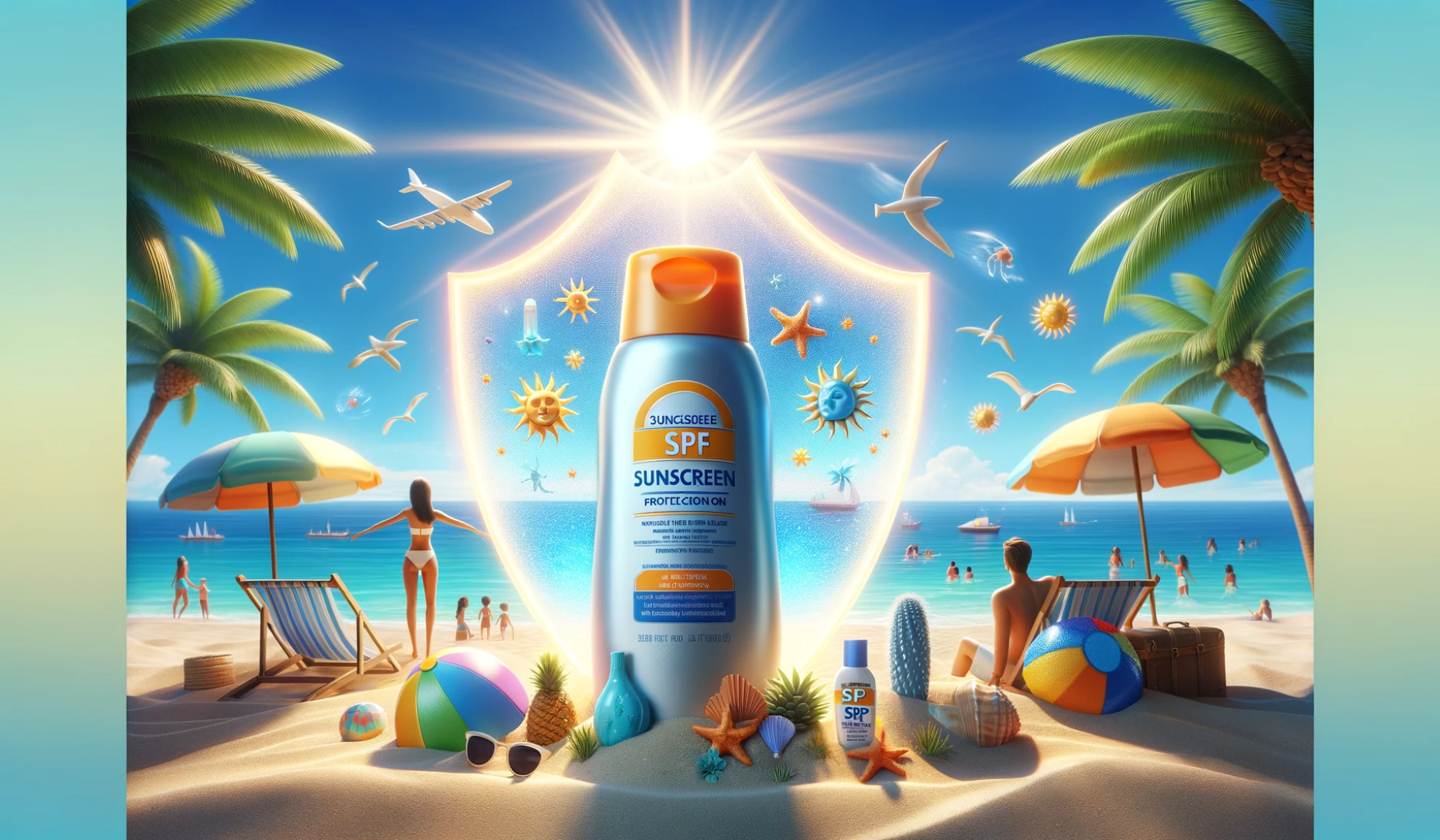Sunscreen Protection: Shielding Your Skin from the Sun's Rays

Introduction:
Sunscreen protection is crucial for defending the skin against the sun's harmful ultraviolet (UV) rays, which can cause sunburn, premature aging, and increase the risk of skin cancer. Sunscreens come in various formulations, offering protection through different types of filters that either absorb or reflect UV radiation. Understanding how to choose and properly use sunscreen can significantly enhance your skin's health and appearance.
Types of Sunscreen Filters:
-
Chemical Filters: These absorb UV radiation and convert it into heat, which is then released from the skin. Ingredients like avobenzone, octinoxate, and oxybenzone are common in chemical sunscreens.
-
Physical (Mineral) Filters: Contain titanium dioxide or zinc oxide to physically block and reflect UV rays away from the skin. Ideal for sensitive skin, physical sunscreens tend to be less irritating and are also reef-safe.
Benefits of Sunscreen Protection:
- Broad-Spectrum Coverage: High-quality sunscreens provide broad-spectrum protection, guarding against both UVA (aging) and UVB (burning) rays.
- Prevents Skin Damage: Regular use helps prevent sunburn, reduces the risk of skin cancer, and combats signs of photoaging, including wrinkles and dark spots.
- Suitable for All Skin Types: A wide range of formulations ensures there's a sunscreen for every skin type, from oily to sensitive.
Incorporating Sunscreen into Your Daily Routine:
- Everyday Application: Sunscreen should be applied daily, regardless of weather conditions, as UV rays can penetrate clouds and windows.
- Correct Amount: For effective protection, use approximately 1/4 teaspoon of sunscreen for the face and about one ounce (or a shot glass full) for the body.
- Reapplication: Reapply every two hours when outdoors, and immediately after swimming or sweating, to maintain protection.
Choosing the Right Sunscreen:
- SPF Rating: Opt for a sunscreen with an SPF of 30 or higher for daily use, and SPF 50 or higher for prolonged outdoor activities.
- Water Resistance: For swimming or heavy sweating, choose a water-resistant formula to ensure continuous protection.
- Skin Type Considerations: Select formulations compatible with your skin type, such as oil-free for oily skin or fragrance-free for sensitive skin.
Precautions and Considerations:
- Sensitive Skin: Mineral sunscreens are generally recommended for those with sensitive skin due to their lower risk of irritation.
- Environmental Impact: Consider reef-safe and environmentally friendly sunscreens to protect marine ecosystems.
Sustainability and Sourcing:
Support brands that prioritize sustainable practices in sourcing and packaging, contributing to environmental conservation.
FAQs:
- How often should sunscreen be replaced? Sunscreens should be replaced at least every year, as the efficacy of the filters can degrade over time.
- Can I wear makeup over sunscreen? Yes, sunscreen should be applied as the last step in your skincare routine, underneath makeup, to ensure effective protection.
Shop Sunscreen Protection
Conclusion: Sunscreen protection is an indispensable part of skincare, essential for preventing sun damage and maintaining skin health. By selecting the appropriate type and SPF level of sunscreen and applying it as part of your daily routine, you can enjoy the outdoors while safeguarding your skin's well-being.
Disclaimer: This content is provided for informational purposes only and does not constitute medical advice. While sunscreen, including products containing zinc oxide, is crucial for protecting the skin from UV damage, individual needs and reactions can vary. Users are encouraged to perform a patch test before using new sunscreen products, especially those with sensitive skin or specific skin conditions. Pregnant or breastfeeding women and individuals with health concerns should consult with a healthcare professional before using new skincare products. Ghama Health is not responsible for any adverse effects or dissatisfaction resulting from the use of sunscreen products based on the information provided.





















